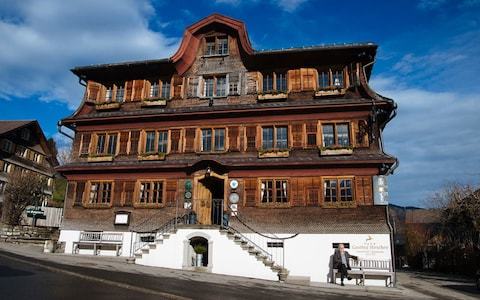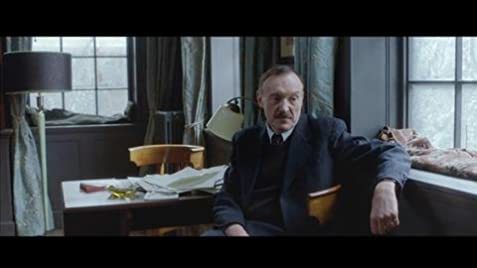What do you think?
Rate this book


160 pages, Paperback
First published January 1, 1911
A line was dug into his brow, the slight twelve-year-old looked almost old as he sat there brooding, without sparing a glance for the landscape unfolding its resonant colours all around: the mountains in the pure green of the coniferous forests, the valleys still young with the fresh bloom of spring, which was late this year. All he saw was the couple opposite him on the back seat of the carriage, as if his intense glances, like a fishing-line, could bring the secret up from the gleaming depths of their eyes. Nothing whets the intelligence more than a passionate suspicion, nothing develops all the faculties of an immature mind more than a trail running away into the dark. Sometimes it is only a flimsy door that cuts children off from what we call the real world, and a chance gust of wind will blow it open for them.









“Se encontraba en esa edad decisiva en la que una mujer empieza a lamentar el hecho de haberse mantenido fiel a un marido al que al fin y al cabo nunca ha querido, y en la que el purpúreo crepúsculo de su belleza le concede una última y apremiante elección entre lo maternal y lo femenino. La vida, a la que hace tiempo parece que se le han dado ya todas las respuestas, se convierte una vez más en pregunta, por última vez tiembla la mágica aguja del deseo, oscilando entre la esperanza de una experiencia erótica y la resignación definitiva.”El hijo será el vértice sobre el que Zweig sitúe el foco, y así sentiremos tanto la angustia del niño por lo que intuye y no acaba de entender como el rechazo y la incomodidad que sufre la pareja adúltera ante la vigilancia a la que se ven expuestos por este. Zweig logra atrapar al lector entre la falta de escrúpulos y el apetito sexual del cazador, la disyuntiva de la presa entre el deber maternal y el deseo, y las ansias del niño por proteger a la una del otro sin saber muy bien de qué la está protegiendo y por qué esta no se deja proteger.
“Ocultan algo. Entre ellos existe algún secreto que no quieren revelarme. Un secreto que debo averiguar a toda costa. Ya lo sé, tiene que ser el mismo que siempre me ocultan cerrando las puertas con llave, ese secreto del que se habla en los libros y en la ópera, cuando hombres y mujeres cantan los unos frente a los otros con los brazos abiertos, se abrazan y se apartan de un empujón. De alguna forma tiene que ser lo mismo que aquello que ocurrió con mi profesora de francés, que se llevó mal con papá y a la que después despidieron”No se puede decir que esté entre lo mejor del autor, pero aun así sigue siendo una delicia.
